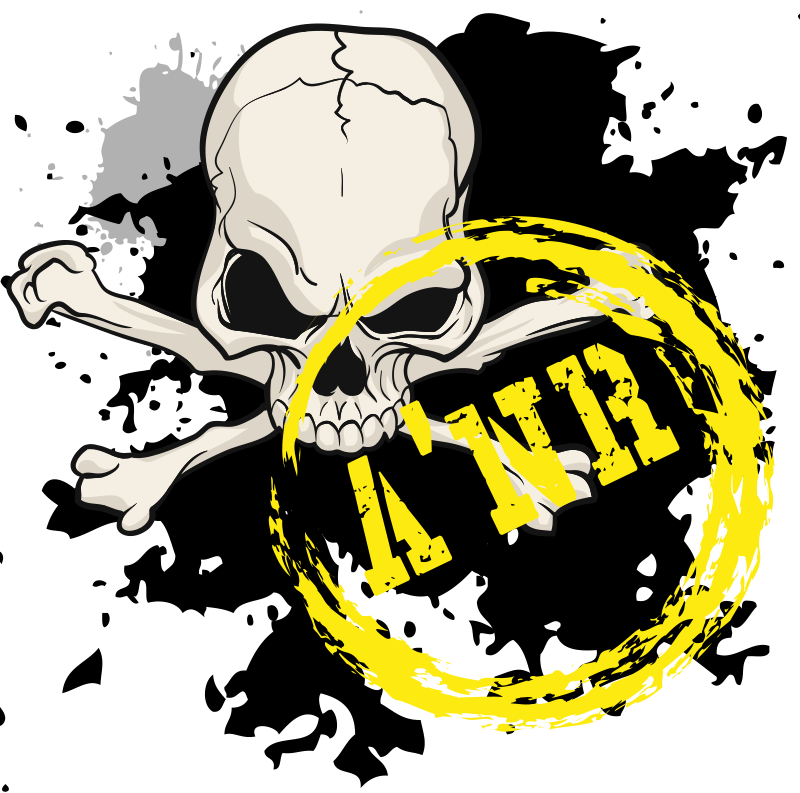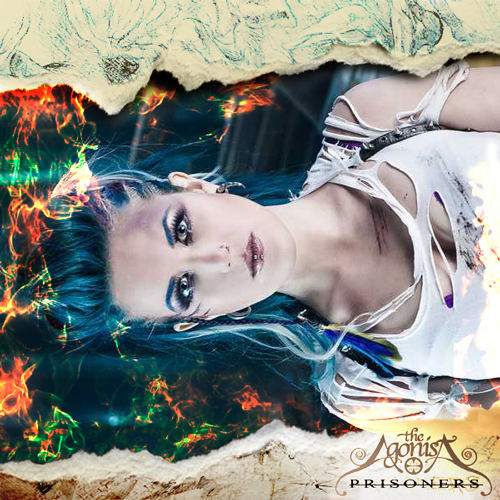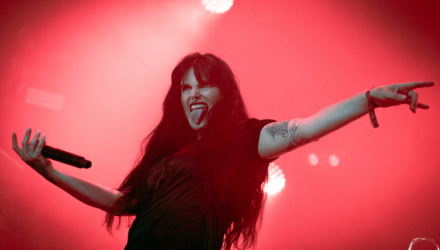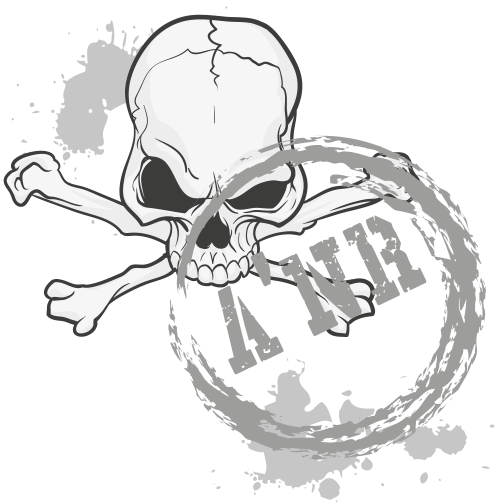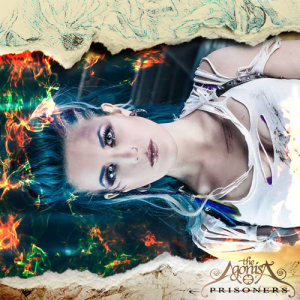
ANR : Comment le groupe a commencé au Québec ?
Alissa : En 2004, Danny et Kells étaient dans un autre groupe ensemble, ils avaient besoin d’une chanteuse, je les ai rejoint. En 2006 nous avons virés le batteur et nous avons Simon depuis. En 2010, nous avons ajouté Paco. Nous avons sorti notre premier album en 2007, c’est un album que nous avons essentiellement écrit pour jouer sur scène, il était vraiment facile à enregistrer parce que tout cela était déjà bien rodée à force de le jouer sur scène depuis tant d’années. On s’appelait The Tempest au début et on a changé notre nom pour The Agonist quand on nous a signés et c’est tout.
ANR : Décrirais tu « Prisoners » comme une suite a « Lullabies for the Dormant Mind »?
Alissa : Oui, je pense. Selon mes gouts personnels, j’aurais été heureuse de faire « Lullabies for the Dormant Mind » une fois de plus, parce que c’était vraiment mon truc. Je pense que vous avez besoin de plus de patience pout écouter Prisoners, ce que je n’ai pas, donc je pense que c’est pourquoi il était frustrant de l’enregistrer. Mais c’est une évolution. Ce n’est pas le même album encore une fois, c’est un album différent.
ANR : Racontes moi en un peu plus sur les thèmes abordés dans l’album.
Alissa : C’est beaucoup plus introverti que mes précédents albums. J’ai encore évidemment des sujets dont je me préoccupe, parce qu’ils sont une partie de moi. Il y a évidemment beaucoup à propos de la protection de la terre et la protection des animaux là-dedans, mais il y a aussi différentes sortes de concepts philosophiques dans lesquels je me plonge, et j’ai vraiment pensé à l’esprit par rapport à la matière. L’esprit humain par rapport à la société.
Il y a beaucoup d’intérêts introverti et extraverti chez les êtres humains. Une grande partie des paroles sans doute ne le mentionnent pas, mais vous pourriez probablement les lire plusieurs fois et découvrir de nouvelles choses à chaque fois.
ANR : Tu déclares que la façon de jouer sur scène est plus intense qu’avant, pourquoi ?
Alissa : Je suppose que nous voulions juste refléter ce pourquoi nous avions fait l’album. Donc pour être complètement honnête, il n y a rien à cacher. Cet album a été emmerdant à enregistrer, et si on a l’air de souffrir quand nous jouons sur scène, c’est afin que le public puisse réellement expérimenter ce qu’était de faire cet album et ce que c’est de l’interpréter.
ANR : As-tu d’autre façon de t exprimer artistiquement que la musique ?
Alissa : D’autres qui viennent avant la musique, certainement. Je peins. J’ai fait ça pendant très longtemps. Artistiquement j’ai fait du slam. Peindre, dessiner and le stylisme plus que tout autre chose. La mode est un de mes intérêts. Ce sont tous les différents moyens de m’exprimer artistiquement. Parler publiquement aussi. Bien que ce ne soit pas exactement artistique. Pas toujours, mais parfois ça l’est. Ce sont mes premières amours.
By Mamy.
En version originale :
ANR : How did the band started back in Quebec?
Alissa : In 2004, Danny and Kells were in another band together, they needed a singer, I joined. In 2006,
we kicked out the drummer we had and got Simon in there. In about 2010, we brought Paco in.
We released our first album in 2007, and that was an album we had basically written just to play
shows, and it was really easy to record because all of it was already well-rehearsed from playing
shows on it for so many years. We were called The Tempest at first and then we changed our
name to the Agonist when we got signed, and that was it.
ANR : Would you describe « Prisoners » as a continuation of « Lullabies for the Dormant Mind »?
Alissa : Yeah, I think so. For my personal tastes, I would’ve been happy to do Lullabies all over again,
because that was really my taste. I think you need more patience to listen to Prisoners, which I
don’t have, so I think that’s why it was frustrating to record. But it’s an evolution. It’s not the
same album again, it’s a different album.
ANR : Tell us more about the subjects going on in this album.
Alissa : It’s a lot more introverted than my previous albums. I still obviously have the topics that I
care about, because they’re a part of me. There’s obviously a lot of protection of the earth and
protection of animals in there, but there are also different sorts of philosophical concepts that
I delve into, and I really thought about mind versus matter. The human mind versus society.
There’s a lot of introverted and extroverted and interest in human beings. A lot of the lyrics
probably don’t mention it, but you could probably read them many times and get new things out
of it every time.
ANR : You declare that the way you act on stage is more intense than before, why?
Alissa : I guess we just wanted to sort of reflect what making this album was. So, to be completely
honest, there’s nothing hidden. This album was a pain in the ass to record, and if we look like
we’re in pain on stage when we’re performing it, that’s so the audience can really experience
what making the album was and what performing the album is.
ANR : Do you have any other way to artistically express yourself than music?
Alissa : Others that come before music, sure. I paint. I’ve done that for a long time. Artistically, I’ve
done spoken-word poetry things. Painting, drawing, and designing, more than anything else.
And fashion is of interest to me. Those are all different ways I artistically express myself. Public
speaking, too. Although that’s not exactly artistic. Not always, but sometimes it is. Those are my
first loves.
